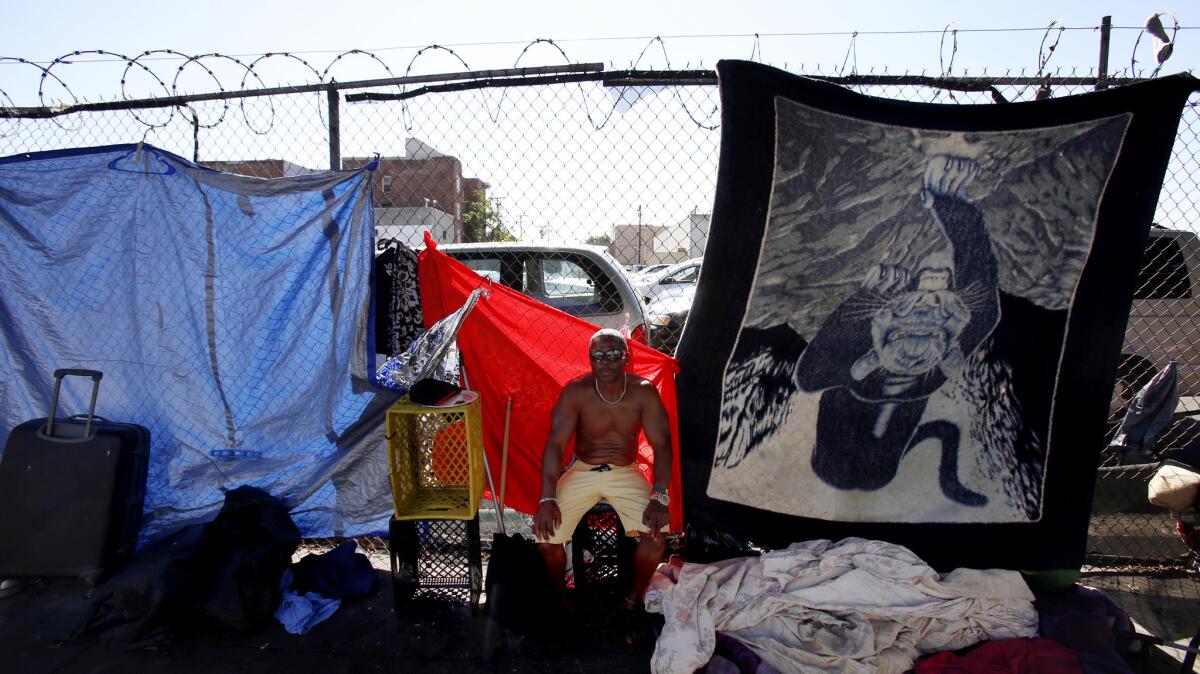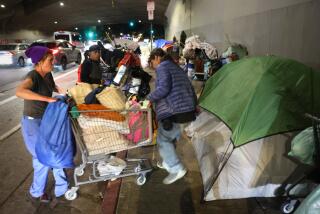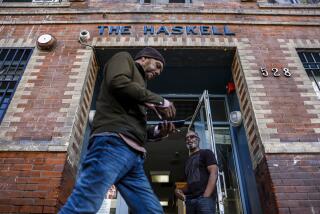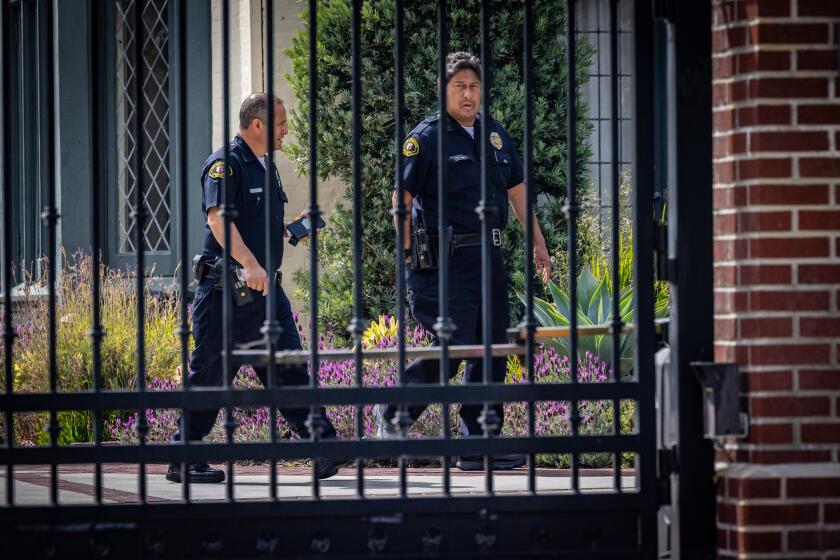L.A. will pay $725,000 to lawyers who stopped skid row police sweeps

The Los Angeles City Council agreed Wednesday to pay $725,000 in fees to civil rights attorneys who successfully challenged police sweeps of overnight homeless encampments on skid row.
As recently as July, the city had asked the U.S. Supreme Court to overturn the fee award in the long-running case. The council’s vote Wednesday was 12 to 1, with Westside Councilman Mike Bonin dissenting.
The decision comes as neighborhoods across the city complain of new homeless encampments springing up in their streets and canyons. Officials and residents of Highland Park, Lincoln Heights and Boyle Heights say they are being inundated by homeless people pushed out by the downtown Los Angeles revival.
Civil rights attorney Carol Sobel said she was encouraged by the city’s turnabout. She said officials have done too little as the case dragged on to get homeless people into permanent housing.
“The city has done nothing to change the situation,” Sobel said. “The economy and the loss of low-income units lost so far outstrip what’s been built [for homeless] it’s not even funny.”
The suit was filed on behalf of six skid row residents who claimed they were forced to sleep on the sidewalks because the city provided no other shelter. A federal appeals court in 2006 ruled the ban on lying or sleeping on public sidewalks amounted to cruel and unusual punishment because there were not enough shelter beds for the city’s huge homeless population.
The decision effectively killed former Los Angeles Police Chief William J. Bratton’s original blueprint for cleaning up skid row by clearing homeless encampments that rise each evening throughout the 50-block downtown district.
The city settled the lawsuit by suspending overnight police sweeps until it could provide 1,250 units of permanent homeless housing. The goal has not been met.
Bratton set up a special task force of 50 officers who aggressively arrested homeless people for quality of life infractions like jaywalking and urinating in public. Homeless numbers on skid row dropped, but police recently counted near-record highs of 1,500 people sleeping on the area’s sidewalks.
City and county officials recently embarked on a new skid row strategy, easing up on arrests and sending in strike forces of sanitation workers and medical and mental health personnel to clean up the area and try to draw people off the streets. City Atty. Mike Feuer said he is looking for money to reinvigorate drug diversion programs and citation clinics to help low-level homeless violators.
Sobel, however, said police had resumed aggressive ticketing for quality-of-life offenses in Venice, another concentration of homeless encampments in Bonin’s district.
“More police didn’t work in downtown and it’s not going to work in Venice,” she said. “Homeless people are being pushed around the city, and that’s not a solution.”
Bonin declined to comment.
The city in its appeal had said the fees, with interest, could top $1 million. A spokesman said Feuer would withdraw the fee appeal.
Follow @geholland for news on homelessness, poverty and skid row.
More to Read
Start your day right
Sign up for Essential California for news, features and recommendations from the L.A. Times and beyond in your inbox six days a week.
You may occasionally receive promotional content from the Los Angeles Times.







